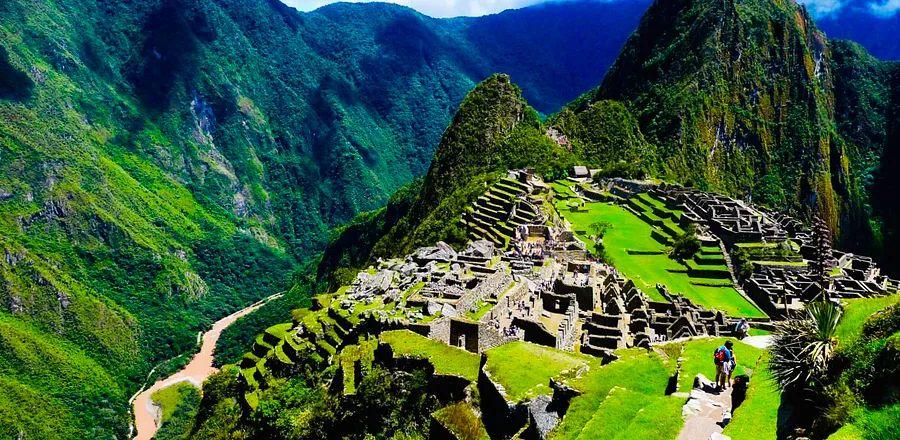Peru Closes Machu Picchu Indefinitely as Protests Escalate

On Saturday, Peru announced the indefinite closure of the renowned ancient ruins of Machu Picchu, marking a significant development in the ongoing antigovernment protests that started last month and are increasingly impacting the South American nation.
The Culture Ministry stated that the country's most iconic tourist destination, along with the Inca Trail leading to it, has been closed “to ensure the safety of tourists and the general population.”
According to Tourism Minister Luis Fernando Helguero, there were 417 visitors stranded at Machu Picchu, with over 300 of them being foreign tourists, who were unable to leave the site during a news conference.
Cusco, the location of Machu Picchu, has witnessed some of the most severe clashes, resulting in a substantial decline in tourism revenue. This week, the Cusco airport was temporarily closed after protesters attempted to breach its security.
Train services to Machu Picchu have been suspended since Thursday due to track damage.
Some tourists who are stranded have opted to walk to Piscacucho, the closest village. According to Helguero, “but that requires a trek of six to seven hours or more, and only a few can manage it.”
The Culture Ministry announced that tourists who purchased tickets for Machu Picchu from Saturday onward, up to one month after the protests conclude, will be eligible for a full refund.
What are the reasons behind the protests in Peru?

Photo by Martin Mejia/AP
The closure of the 15th-century Incan citadel, often celebrated as one of the new seven wonders of the world, coincides with a surge of protesters arriving in Lima, many traveling from remote Andean regions, to demand the resignation of President Dina Boluarte.
On the same day, police conducted a raid at Peru’s leading public university in Lima to evict protesters who had taken refuge on campus while participating in major demonstrations. More than 100 individuals were detained, according to Interior Minister Vicente Romero.
Until recently, the protests had primarily been concentrated in the southern part of the country. They erupted last month following the impeachment and imprisonment of then-President Pedro Castillo, who was the first leader from a rural Andean background and had attempted to dissolve Congress.
Protesters are calling for the resignation of Boluarte, the former vice president who was sworn into office on December 7 to succeed Castillo. They are also demanding the dissolution of Congress and the scheduling of new elections. Castillo remains in custody on charges of rebellion.
Over 55 individuals have lost their lives amid the ongoing unrest, with the latest casualty occurring Friday night when a protester was killed and at least nine others were injured in confrontations with police in Puno. In total, 21 protesters and one police officer have died in the southern region.
On Saturday morning, law enforcement utilized a small tank to forcefully enter the National University of San Marcos.
Javier Cutipa, 39, who had traveled by bus from Puno, had been sleeping on the floor of the university since Thursday but stepped out for breakfast just before the police arrived. He described the police operation as “practically an assault,” involving helicopters, tear gas, and small tanks.
“This is infuriating. The government is only escalating tensions with these detentions,” Cutipa remarked. He warned that “once the population learns about this, they will respond in a more radical manner.”
On Saturday evening, hundreds of protesters gathered outside the police station where detainees were being held, chanting “Freedom” and “We’re students, not terrorists.” Many more gathered at various locations throughout downtown Lima.
The Inter-American Commission on Human Rights voiced its “concern regarding the police's incursion, eviction, and mass detentions” at the university, urging the state to “ensure the safety and due process for all individuals.” The university released a statement indicating that the police operation occurred after protesters “assaulted” security staff.

1

2

3

4

5
Evaluation :
5/5